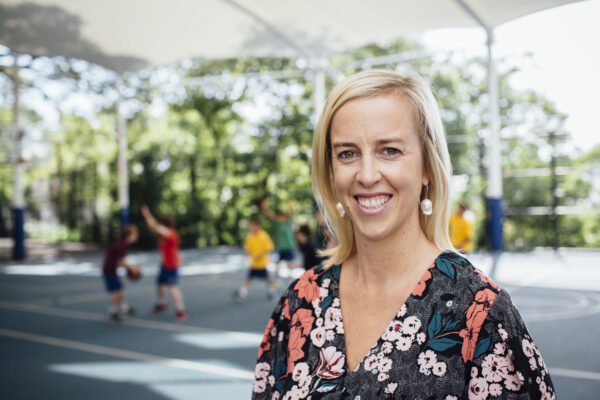
Deputy Principal - Students, Ms Gabby Smith
Vaping
Being up-to-date with the College’s response to vaping and how you can best educate and support your son is important. Over the holiday period we installed vape detectors in the Senior School bathrooms to deter students from vaping, and to ensure all students feel comfortable going to the bathroom.
Waverley College, like many other schools, has seen a recent spike in young people vaping. Electronic cigarettes or e-cigarettes, often called ‘vapes’, are electronic devices designed to deliver vaporised liquids into the lungs. There are many different styles of vapes and types of e-liquids, or e-juices, available. Vapes come in many shapes and sizes and can be made to look like everyday items including highlighters, pens or USB memory sticks.
The biggest misunderstanding about vapes is that they are harmless compared to cigarettes. This is not true. Vapes are not safe.
Vaping Facts
- Many vapes contain nicotine making them very addictive. The nicotine in one vape can equal 50 cigarettes.
- Vapes can contain the same harmful chemicals found in cleaning products, nail polish remover, weed killer and bug spray. They just don’t put it on the pack.
- Vapes can leave young people at increased risk of depression and anxiety.
- Young people who vape are three times as likely to take up smoking cigarettes.
- Vape aerosol is not water vapour.
- Vaping has been linked to serious lung disease.
- Vapes can cause long-lasting negative effects on young people’s brain development.

Common vapes. Image: courtesy NSW Health
Signs Your Child Might Be Vaping
Tell-tale signs that your child might have started vaping include the symptoms of nicotine addiction such as feeling irritable or anxious.
The Laws Around Selling Vapes
Young people often purchase vapes online, from retail stores or from friends and contacts on social media.
- It is illegal to sell vapes to anyone under the age of 18 years.
- It is illegal to sell nicotine vapes to anyone, unless they are prescribed by a doctor to someone over 18 years for smoking cessation purposes and obtained with a prescription from a pharmacy.
There are a number of retailers who sell vapes to young people. This is a crime. If you suspect someone is selling vapes to minors, you can report it to NSW Health via its website or by calling the Tobacco Information line on 1800 357 412.
It is important for young people to understand the risks associated with vaping and make informed decisions about their health. It is also important for parents/carers to educate themselves and their children about the dangers of vaping, and to support policies that help reduce its use among young people.
I refer you to an article published in The Conversation on 23 January 2023 titled My teen’s vaping. What should I say? 3 expert tips on how to approach ‘the talk’. This article provides useful information strategies and support in regards to vaping.
Paul Dillon (Drug and Alcohol Research and Training Australia) Returns to Address Year 12 in our PAC
Today, our Year 12 (Class of 2023) listened to an engaging address by Paul Dillon titled: ‘Last Year of School: What Do I Need to Know About Alcohol and Other Drugs?’ Paul Dillon has been working in the area of drug education for over 30 years.
In a frank and effective delivery, Paul spoke specifically about alcohol and drugs as they pertain to the lives of young males. He explained that young males take risks for longer and exhorted our students to plan ahead.

Paul Dillon
In plain terms and using useful statistical examples, he shared information about e-cigarettes, vaping, and the realities of the composition of liquid nicotine that is ingested when using vapes. He hammered home the speed of addiction via vapes, the toxicity of nicotine and its propensity to poison.
He gave practical advice about alcohol, driving, RBT (random breath tests) – particularly in the Eastern Suburbs of Sydney – and positive Blood Alcohol Content, encouraging our students to make smart choices when they get behind the wheel. He also explained that Mobile Drug Testing (MDT) is not random, but selective, and clarified mobile drug testing protocols for students who may be taking ADHD medication.
He spoke freely about LSD and other psychedelics, naturally-occurring drugs, MDMA/ecstasy, and recent ecstasy-related deaths in Australia.
Our students listened intently to Paul’s direct delivery, and were privileged to have access to his good quality information and best practice drug education.
I encourage Year 12 parents/carers to talk with your son about what he learned today.
LGBTQIA+ Invitation

For the past four years, Waverley College has established successful initiatives to support our LGBTQIA+ students and community. These are deliberate actions to ensure that each individual feels valued, respected, and accepted at the College.
Waverley College is committed to providing a safe and inclusive environment for all students, in particular for same-sex attracted and gender diverse young people. This is living our values of the EREA ‘Safe and Inclusive Learning Communities Statement’ and our Inclusivity Touchstone.
We warmly invite any students who identify as LGBTQIA+ and students who are supportive allies, to join a supportive group.
Interested students are encouraged to have a conversation with their parents/carers about joining this group, then contact one of the following staff for more information:
Interested students, parents and carers should email:
Mr David Parnell dparnell@waverley.nsw.edu.au
or
Ms Stephanie Falk sfalk@waverley.nsw.edu.au
Through this event, and ongoing projects, the College aims to ensure all students feel a sense of connectedness and belonging, paramount to positive student wellbeing and self-esteem.
In keeping with College practices, conversations are affirming and empathetic; confidentiality and appropriate boundaries are respected.
Ms Gabby Smith
Deputy Principal – Students
gsmith@waverley.nsw.edu.au



